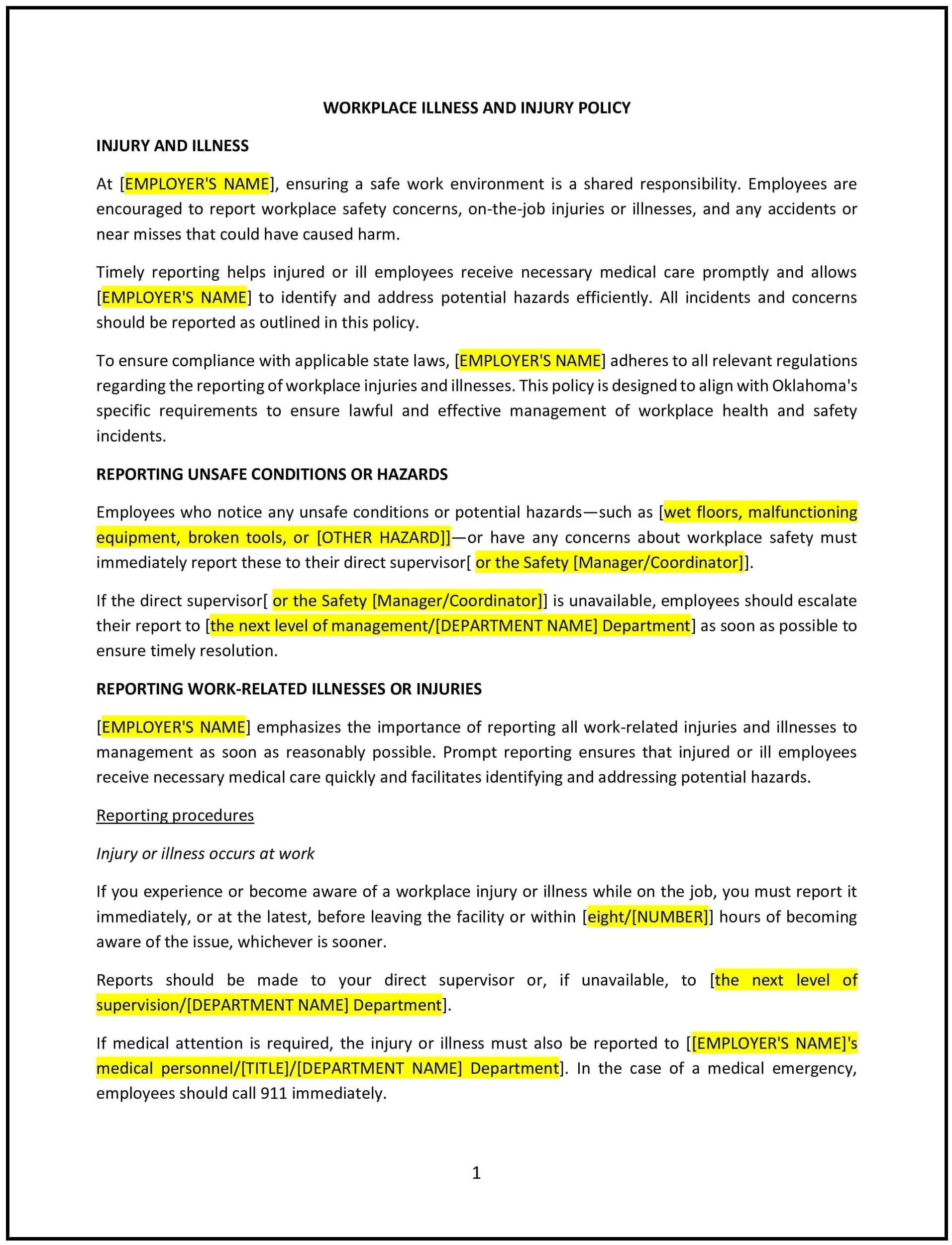Workplace illness and injury policy (Oklahoma): Free template
Got contracts to review? While you're here for policies, let Cobrief make contract review effortless—start your free review now.

Customize this template for free
Workplace illness and injury policy (Oklahoma)
This workplace illness and injury policy is designed to help Oklahoma businesses establish clear guidelines for managing workplace-related illnesses and injuries. The policy outlines reporting procedures, employee responsibilities, and safety measures to minimize health risks and ensure prompt response to workplace incidents.
By implementing this policy, businesses can enhance workplace safety, reduce downtime, and support employees in the event of illness or injury.
How to use this workplace illness and injury policy (Oklahoma)
- Define workplace illnesses and injuries: Identify conditions covered under this policy, including job-related injuries, exposure to hazardous materials, and contagious illnesses.
- Establish reporting procedures: Require employees to report workplace injuries or illnesses to HR or a designated safety officer immediately.
- Outline medical response protocols: Provide guidance on seeking medical treatment, emergency response procedures, and first aid resources.
- Set documentation requirements: Require businesses to maintain records of workplace injuries and illness reports in compliance with Oklahoma regulations.
- Address return-to-work procedures: Establish guidelines for employees recovering from workplace illnesses or injuries, including medical clearance requirements.
- Encourage workplace safety measures: Promote proper training, use of protective equipment, and hazard prevention strategies.
- Review regularly: Update the policy to align with changes in workplace safety laws and industry best practices.
Benefits of using this workplace illness and injury policy (Oklahoma)
Implementing this policy provides several advantages for Oklahoma businesses:
- Enhances workplace safety: Reduces the risk of preventable injuries and illnesses.
- Improves response time: Ensures swift action when incidents occur.
- Reduces legal risks: Helps businesses comply with workplace safety and reporting regulations.
- Supports employee well-being: Provides clear procedures for medical care and recovery.
- Reflects Oklahoma-specific workplace considerations: Addresses state-specific reporting and workplace safety standards.
Tips for using this workplace illness and injury policy (Oklahoma)
- Train employees on safety procedures: Conduct regular workplace safety training to prevent accidents.
- Implement a clear reporting system: Ensure employees know how to report illnesses and injuries quickly.
- Maintain proper documentation: Keep accurate records of workplace incidents and follow state-mandated reporting guidelines.
- Encourage proactive health measures: Promote vaccinations, hygiene practices, and wellness programs to reduce illness risks.
- Adjust as needed: Update policies based on workplace trends and regulatory changes.